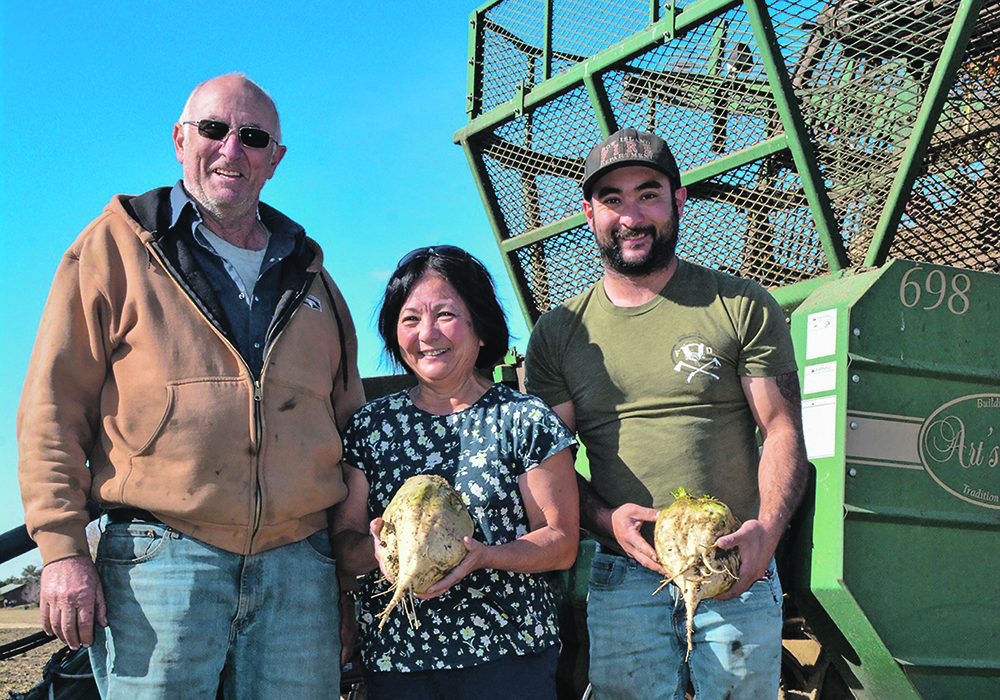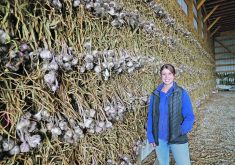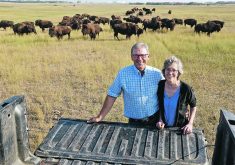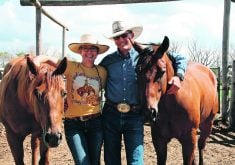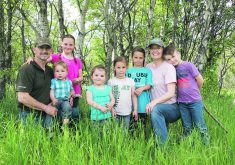On the Farm: The Lyczewskis say there are many benefits to working alongside each other on their sugar beet operation
There is a golden rule at Lyczewski Farms — lunch is at noon, supper is at 5 p.m., or you’re not getting any.
“You’re going to eat a meal at the right time,” said Sharlene Lyczewski of how things operate on the beet and cereal farm located south of Bow Island, Alta., with a clear view of Montana’s Sweet Grass Hills.
“We always have our meals together,” said Sharlene. “I think it’s important for families to eat together.”
While that rule is strict and farm work can be put on hold, there was one promise Sharlene said she made to herself that was subsequently broken.
“I would never marry a farmer,” said Sharlene, a Bow Island native.
Her husband, Bernie, whose family first sod-busted the land in 1905, said he broke his own commitment when he married Sharlene.
“I said I would never marry a girl from Bow Island,” he said.
More than 40 years later, neither Bernie nor Sharlene have any regrets, raising their two children, Gary and Megan Armet, on the homestead.
“It’s the best life,” said Sharlene. “It’s been the best life for our kids and our family.”
For Bernie, after working off the farm for a little while, he came back in 1974 to put in a year before moving on.
“And I’ve been here ever since,” he said.
After marrying Sharlene in 1980, who was working for a dealership and bank at the time in Bow Island, Bernie said the shortage of drivers was pretty bad and he asked his wife to consider getting her trucker’s licence.
“Just for one year,” he said. “Well, it was 17 years she drove truck.”
While the couple’s daughter has left the farm, their son, Gary, continues to work for the operation after getting his heavy mechanic’s ticket.
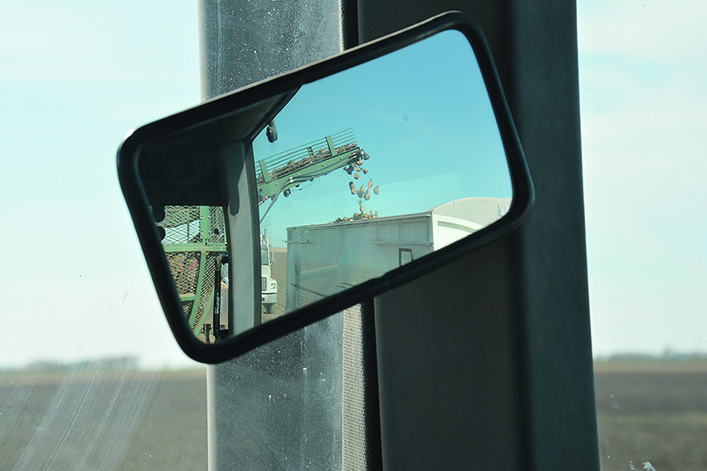
With Alberta’s waning oilpatch no longer providing high-paying jobs, Gary said there is a trend in returning to the farm among those who spent their 20s working in the oil and gas industry.
“There is a big boom back here,” said Gary, adding it’s put new life in community facilities like curling rinks and parks. “It keeps our community going.”
Gary said while he works part time on the farm, he intends to come back full time at some point with his agronomist wife, Laurie, along with their twin girls.
His fond memories of growing up on the farm are the biggest attraction.
“As soon as Dad went out for work, I’d want to go ride with him. I’d have naps in the tractor leaning up against the window or laying at the back windowsill — just being out here all the time having this free space, it’s something you enjoy and take pride in growing,” said Gary.
Bernie said having the family on the farm is rewarding and the benefits of working alongside his wife in the field, not to mention having a son who’s a mechanic and daughter-in-law as an agronomist, gives them independence.
Combined with advice and help of neighbours, the size of the farm is just right to allow for the freedom to operate without the necessity of having to manage a couple of dozen employees.
“We can manage it ourselves,” said Bernie. “That’s what it’s all about.”
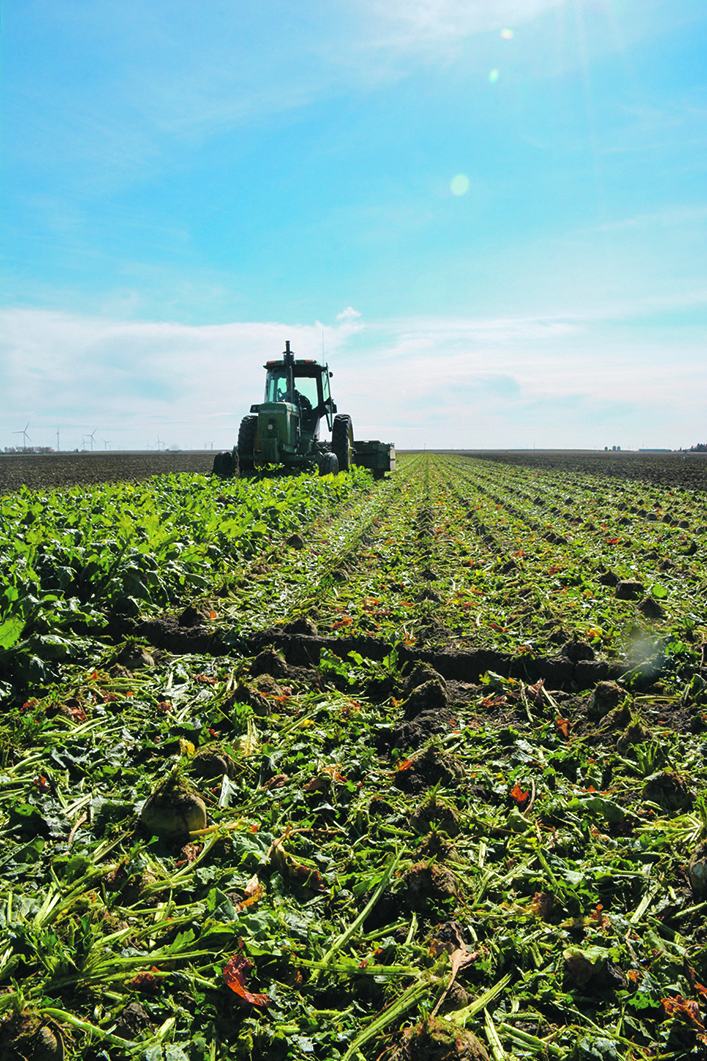
He gives credit to his grandfather, who broke the land with a horse and plow, and his father, who brought irrigation to the farm, for the opportunity.
Bernie said the cost of buying land these days makes expansion difficult and that makes succession planning more difficult, he said, especially with one child living off farm and another working part time on the operation.
Despite those future challenges, Sharlene calls farm life “the most amazing gift.”
The ability to pass the operation on to a fourth generation is something that she said is important for the future.
“I know their grandfather would be proud the farm is going for another generation.”


